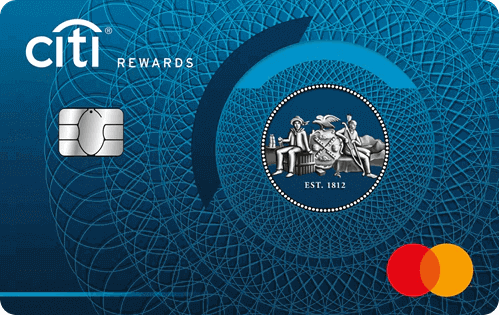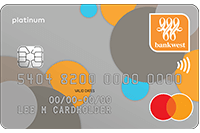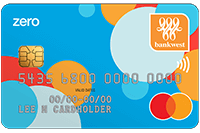What are credit card limits and should you change it?
Savrr.com is a trading name of Fair Comparison Pty Ltd. Comparison tables are powered by Fair Comparison Pty Ltd who do not compare every provider in the market, or all products from the displayed providers. Fair Comparison Pty Ltd does not give recommendations, advice or credit assistance and may receive a fee if you, apply, click through, or successfully qualify, for a product displayed.
Learn More
Accumulating credit card debt can be a situation many people find themselves in, especially when the cost of living is rising, as it has been lately. But before applying for a credit card, there’s an important consideration that could help avoid credit card debt piling up - choose a suitable credit card limit. This guide covers key information about credit card limits that could help you make a more informed decision about what maximum credit limit you decide to apply for.
What is a credit card limit?
When a lender approves your application for a credit card, it will set a limit to how much credit you can use. Every time you buy something with the card, you’ll ‘use up’ some of that credit. And when you make a repayment, you’ll ‘refill’ some of the credit.
As an example, excluding interest, let’s say your credit card limit is $1000. If you use your card to buy a pair of jeans for $100, you’ll have $900 left to spend. If you then make a $50 repayment, you’ll have $950 left to spend. If you then buy a fridge for $950, you’ll have used up all your credit and won’t be able to buy anything else with your credit card until you’ve repaid some of the borrowed funds.
You can spend and repay credit as many times as you like as long as you never allow your credit card balance to go above your credit limit — that is, you never spend more than your limit.
If you try to spend more than your credit card limit allows, your transaction may be declined. However, some lenders allow their customers to overspend but are likely to charge a fee when they do so. That means it’s essential that you keep track of your credit card balance and know the terms and conditions of your card inside out.
Maximum vs minimum credit card limits
Lenders have a range of eligibility and lending criteria for their credit cards plus lengthy terms and conditions. The differences in each of these can make for vastly different types of credit cards including a different minimum and maximum limit.
The minimum credit card limit is the smallest amount of credit the lender will approve the card for. Lenders usually set a minimum and in Australia, minimum credit limits are often somewhere between $500 and $15,000.
The maximum credit limit is the largest amount of credit the lender will approve the card for. Lenders often set a maximum to help control the risk of the loan. In Australia, maximum credit limits are frequently somewhere between $3000 and $100,000.
It’s important to note that not all lenders publish the minimum and maximum limits for their cards, and an eligibility assessment will need to take place for any limit to be approved.

How to choose a maximum credit card limit
Choosing a credit card limit might seem like an inconsequential decision. As long as it’s enough to cover your likely expenses, that should be fine, right?
Well, no. That’s not the only thing to consider.
Your maximum credit limit and how you use it could affect your credit score. Plus, the higher your credit card limit, the more debt you can accrue, which can impact your ability to borrow through other channels. For example, if you have a credit card with a high maximum limit, and you later decide to apply for a car or home loan, the amount you can borrow via that loan is likely to be less than if you had a lower credit card limit.
When choosing a credit card limit to apply for, you may want to consider the following:
- The total amount you’re likely to spend on a credit card in an average month (e.g. your average monthly expenses might normally equate to $2000, and you might decide to pay all of those expenses on credit so you can take advantage of rewards points and other perks).
- The value of the largest single transaction you’re likely to make while you have your card (e.g. you might want to pay all your insurance cover premiums on your credit card in one month, so there might be one month a year when your expenses are significantly above your average).
- Your income and how much is left over after normal expenses (this can help you understand how much you could normally repay each month, if you allow a balance to carry over, and what wiggle room you might have if you have unexpected expenses).
- How the credit limit affects the features of the credit card (for example, some cards with lower limits may have lower interest rates and fees, or vice versa).

Citi - Rewards Credit Card
Purchases and Balance Transfer offer
Purchase Rate
Interest Free Period
Balance Transfer
2% BT fee applies.
Annual Fee

Credit Union SA - Education Community Credit Card
Purchase Rate
Interest Free Period
Balance Transfer
Annual Fee

Credit Union SA - Workplace Benefits Credit Card
Purchase Rate
Interest Free Period
Balance Transfer
Annual Fee

Bankwest - Zero Platinum Mastercard
Purchase Rate
Interest Free Period
Balance Transfer
3% BT fee applies.
Annual Fee

Bankwest - Zero Classic Mastercard
Purchase Rate
Interest Free Period
Balance Transfer
3% BT fee applies.
Annual Fee
.
You can then come up with a limit that will cover your foreseeable expenses, and maybe even a buffer for unforeseen expenses if you wish, without being so high that it adds to the risk of piling up additional credit card debt if you’re unable to make your repayments on time.
In Australia, your credit card limit will be listed in your credit file, but your credit card balance will not be listed. So, the amount of credit you actually use does not affect your credit score in Australia, the limit does. Ofcourse, if you don’t make your repayments on time by the due date, that information will usually be included in your credit history.
Stock market columnist Simian Kaur advises, “Many of us assume it's best to ask for a larger limit, for those ‘just in case moments’. However, this can easily lead to overwhelming credit card debt and financial anxiety.”
Ms Kaur also recommends keeping your credit card limit slightly lower than your monthly income. For example, if you made $4000 a month, she suggested a limit of $3000 may be suitable.
“My advice is to stash cash away in a high-interest online savings account for those ‘emergencies’ and only use credit cards for daily expenses. This keeps overspending at bay,” she said.
Note, just because you apply for a particular credit limit, doesn’t mean your lender will approve your application with that limit. They may approve your application but offer a lower limit.
When choosing what credit limit to apply for, it’s also worth bearing in mind that you’re not stuck with whatever you choose initially. If your expenses increase or decrease in the future (e.g. you have a baby or your kids leave home), you can apply to increase your limit or request a lower limit. The caveats are that:
- You can’t ask for a limit that’s outside the minimum and maximum limits for the card.
- Your lender will assess your application for an increase to your limit in much the same way that they’ll assess your initial application for the card, and if either application is denied, that could negatively affect your credit score.

What do lenders consider when evaluating your credit card application and limit?
When assessing your credit card application and deciding what limit to offer, most lenders will take the following things into consideration:
- Income — Your lender will look at your salary and any other income you earn such as government payments, rental income and money from other assets.
- Liabilities — Your lender will look at whether you have any other debts, such as other credit cards or a personal loan, car loan or home loan.
- How much you can repay — The National Consumer Credit Protection Act outlines requirements for lenders to complete an assessment to ensure the credit contract they offer you is not-unsuitable. This can include ensuring they do not offer you a credit limit that’s more than what you can afford to repay, so your lender will look at your expenses and compare those with your income and other liabilities.
- Credit history and credit score — Your lender will want to understand how likely you will be to make your repayments and make them on time, so it will also ask your permission to perform a credit check which will show your credit history (how you’ve used credit) and what your credit score is.
Once you’ve picked the limit you want to apply for, you may want to compare a range of credit cards. Comparing credit cards may not be easy because much of the information available can be full of complicated financial terminology. So, to make that process far easier for you, we’ve put together a simple guide that:
- Provides information about some of the ins and outs of credit cards
- Lists a range of cards and their features, available in Australia
- Includes questions to ask that could help to compare credit cards
If you're ready to compare credit cards, why not start with our handy credit card comparison and compare a range of credit card options quickly and easily.